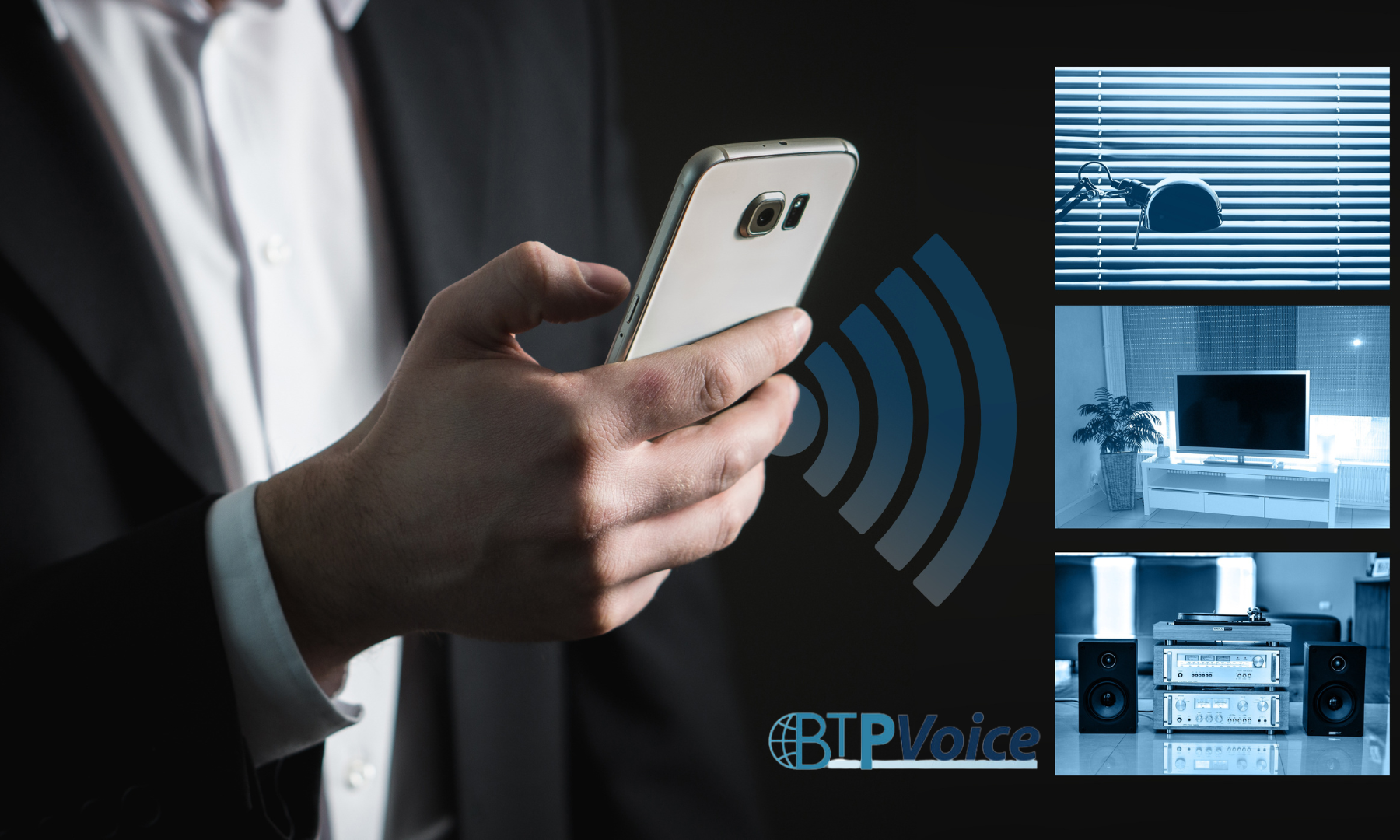How Cloud Phone Systems Are Transforming Business Communications
What You Need to Know Before Going VoIP: Is Your Phone System Ready?

Are you ready to make the switch to VoIP? It's no secret that Voice over IP (VoIP) technology has been gaining in popularity as companies across all industries strive to reduce costs and increase efficiency. After all, making the move to VoIP can yield a lot of benefits, such as improved scalability, enhanced call quality, and reduced latency.
But before you jump in head-first, it's important to understand that making the change isn't as simple as plugging in a new phone system. There are a few key factors you'll need to consider before committing to VoIP—namely, whether or not your current phone system is up for the job.
This article will walk you through the essentials: we'll give you an overview of what VoIP is and explain why it's so important for businesses today. Then we'll tell you what type of phone system is most suitable for VoIP and provide tips on how best to make the switch. Let's dive in!
What Is VoIP?
VoIP stands for Voice over Internet Protocol and it allows businesses to make phone calls over the internet instead of through traditional telephone lines. VoIP can provide a lot of advantages such as improved call quality, lower costs, and more features compared to traditional phone systems.
If you’re new to VoIP, there are a few things to keep in mind. First, you need to make sure that your organization has sufficient internet bandwidth so that the calls won't be affected by lagging or signal loss. You also need to determine whether your existing phone system will be compatible with VoIP service providers; many businesses will require extra hardware or software that may need to be installed in order for their system to work properly. Additionally, you should research the security protocols of your provider to ensure that your business's communications remain private and secure.
It’s important to have all of these questions answered before diving into VoIP in order for you and your team get the most out of this new technology!
Understanding the VoIP Technology
VoIP, or Voice over Internet Protocol, is a digital phone system that works by transmitting voice and video calls through the internet. This technology has completely revolutionized the world of communication, making it faster and more reliable than ever before.
Before switching to VoIP, you'll need to make sure your current phone system is ready for the transition. To do this, you'll have to evaluate the existing phone system and see if it meets the following requirements:
- An existing internet connection with adequate speeds and bandwidth
- A dedicated modem or router for VoIP installation
- A qualified technician to ensure smooth installation
- An IP telephone system connected to a compatible VoIP server
- Access rights (in case of an online portal) for setup and configuration purposes.
Once all these criteria are met, you're good to go! Adopting a VoIP phone system can provide your business with many advantages and improved call clarity. Plus, with many providers offering cost savings of up to 40%, chances are you'll be saving on long distance service too!
Advantages and Disadvantages of VoIP Services
Before you make the jump to VoIP, it's important to understand its advantages and disadvantages. VoIP is widely used for its many advantages, such as lower cost, high scalability and mobility, but it may not be suitable for all businesses. There are drawbacks to VoIP systems that you should consider before switching over from traditional phone lines.
Advantages of VoIP Services
VoIP services offer a lot of features that traditional phone systems cannot match – features like low calling costs, great scalability and access from any device. With VoIP, businesses can take advantage of audio conferencing capabilities as well as unlimited extensions that lead to increased productivity and decreased costs. In addition, since most VoIP systems are accessible via web-based interfaces, businesses no longer need to worry about maintaining expensive on-site hardware.
Disadvantages of VoIP Services
Despite the many advantages of VoIP systems, there are some drawbacks that you must consider before switching over. One example is that VoIP service can be interrupted by power outages or internet connection problems – traditional phone lines would continue operating during these types of events. For this reason, many businesses decide to have both traditional landlines and a VoIP system in place for added reliability. Additionally, sound quality can suffer if the connection speed is too slow or if there are too many people calling at once due to the limited bandwidth available.
Security Concerns With VoIP Services
When you think about VoIP services, it's important to keep security in mind. After all, since VoIP services are cloud-based, they provide a great deal of convenience but this convenience comes with some significant concerns.
That's why it's important that any businesses or organizations considering VoIP services take measures to protect their data. Here are some top security concerns and how to combat them:
Malware Attacks
Malware attacks are a major concern with VoIP systems, and they can be difficult to detect and mitigate. But not impossible! Make sure you have the right antivirus system in place before using a VoIP service, and regularly monitor your system for viruses or malicious activities.
Unencrypted Calls
Encrypting calls is essential when using a VoIP service, as calls passing through public networks can easily be intercepted and compromised. Choose a reputable provider who offers robust encryption for your data and calls for added peace of mind — it's worth the investment!
Denial Of Service (DOS) Attack
VoIP systems are vulnerable to DOS attacks, which occur when hackers flood your system with huge amounts of traffic so that it can't process calls or messages properly. Choose a provider who has built-in protection against DOS attacks, such as limiting the number of simultaneous connections or setting up firewalls that help reduce this type of attack.
By being aware of these security concerns and taking steps to address them, you can make sure that your organization is well-equipped to use VoIP services safely and securely.
Testing Your Phone System for a VoIP Switch
Alright, so you know what VoIP is and that it might be a good fit for your business—but how do you know if you're actually ready to switch to VoIP?
Testing your phone system is the answer. It's important to test your phone system beforehand to make sure everything works smoothly after the switch. If you try to switch without testing, there can be very real issues, like poor-quality audio or call dropping.
To test if your current phone system is ready for VoIP, there are a few steps you should take:
- Make sure that the network connection has enough bandwidth — the lower the bandwidth number, the lower quality of sound and video. We recommend at least 90Mbps for an optimal experience.
- Connect all of your devices (PCs and phones) to the router or LAN switch. Make sure that all ports are open and that there's no firewall blocking any of them.
- Check if voice quality is optimal by making test calls (at least 20). If more than 1% of them don't meet quality standards, then make sure to update equipment or adjust settings until they do meet standards—it's essential for uninterrupted communication with customers and clients over VoIP phone systems!
Once your devices have been tested and are ready, then you can be confident that switching to VoIP won't bring any surprises later down the line!
Upgrading Your Phone System for a Successful Transition to VoIP
Are you considering transitioning to VoIP and worried about whether or not your phone system is ready to make the jump? No need to worry—you just need to pay attention to a few things first.
Network Bandwidth
The first thing you need to know is that you must have an adequate network bandwidth that allows for calls over the Internet. To check, run tests between two users on your network and measure how much bandwidth they use with standard phone conversations. If the results seem too low, your IT team can always configure the network and provide more bandwidth in order to maintain quality throughout all VoIP conversations.
Security Protocol
It's also important to ensure that proper security protocols are in place, as there could be a risk of data theft if it’s not done correctly. Firewalls should be properly setup, and encryption protocols put in place such as IPsec or TLS prevents any malicious activities from happening on the specific server that you are using for VoIP communication.
Finally, make sure there is clean power supply as VoIP needs delicate circuitry that needs uninterrupted power supply since any fluctuations could damage its components and hinder communication quality. By doing all these measures, you can rest assured knowing that your phone system is ready for VoIP!
Conclusion
Ultimately, VoIP technology is an investment that can save you money, streamline operations, and improve customer satisfaction in the long run. Before you pull the trigger on an upgrade, however, you want to make sure your phone system is up to the task and ready to make the transition.
An experienced VoIP provider can help you assess the current state of your phone system, and make recommendations on how to make it VoIP-ready, or upgrade to a system that is. Be sure to ask them about how long it will take to get your system up and running, and inquire about training and customer support options. With the right preparation and a reliable partner, VoIP can be a great move for your business.











